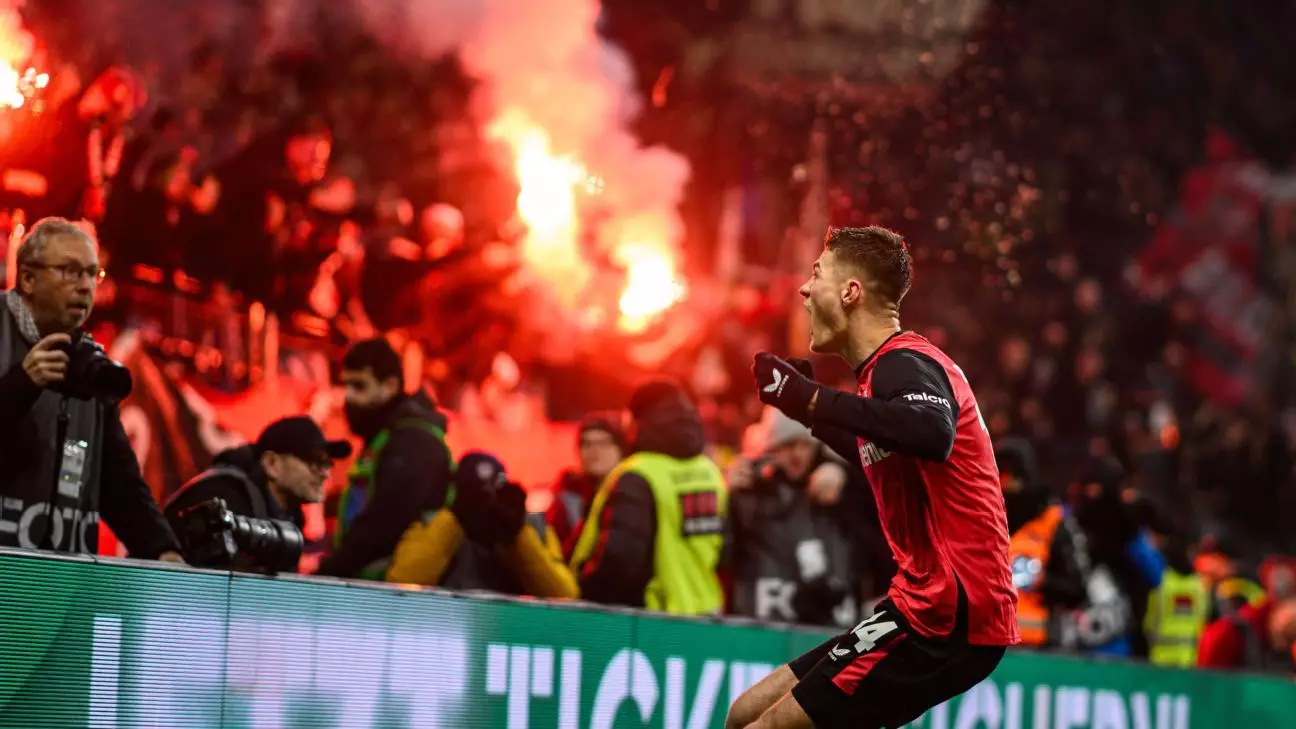The DFB-Pokal, Germany’s preeminent domestic cup competition, stands as a testament to the enduring allure of football. Unlike many cup competitions around the world that have struggled to maintain their significance, the Pokal commands respect and excitement, weaving itself deeply into the fabric of German football culture. This article will delve into the distinct qualities of the DFB-Pokal, revealing why it remains a pillar in the realm of European football, and how it captivates fans year after year.
One of the most striking aspects of the DFB-Pokal is its flawless integration into the German football calendar, where it kicks off each year in August with a charming first round featuring lesser-known clubs. Teams like Teutonia Ottensen and SV Rödinghausen may not frequently splatter headlines, but their participation brings an element of surprise and joy to the competition. These clubs symbolize the grassroots spirit of German football, creating a narrative that stretches beyond the traditional powerhouses.
With matches consistently scheduled for midweek, there’s a palpable sense of anticipation that builds over time, culminating in the iconic final held annually at the Berliner Olympiastadion in May. The structured scheduling of the DFB-Pokal, devoid of odd midweek games, ensures that the competition maintains its essence and significance, reflecting the fans’ reverence for the tournament.
The ongoing competition for the coveted cup is further emphasized by the commitment of participating teams, irrespective of their league status. Bayer Leverkusen’s recent quarterfinal clash with FC Cologne, for instance, showcased the level of seriousness with which even top-tier clubs approach the Pokal. Manager Xabi Alonso’s decision to field a strong lineup is a glaring reminder that for many, winning the cup is as critical as triumphing in league play. This contrasts sharply with narratives from other leagues where the cup might be treated as a secondary concern, leading to rotations that dilute competitive integrity.
During that memorable match, the highs and lows of football were on full display. Cologne’s impressive start with a 2-0 lead flashed the brilliance of counterattacking football, only for Leverkusen to rally back in a thrilling turnaround. Such dramatic moments are the lifeblood of the DFB-Pokal, capturing the intense emotions that keep fans on the edge of their seats, making it relatable to everyone who loves the beautiful game.
The DFB-Pokal doesn’t just celebrate top-flight clubs; it emphasizes the role of tradition and community within football. Clubs like Werder Bremen and Arminia Bielefeld are reminders of this heritage, showcasing the inclusive nature of the competition by allowing lower league teams to create unforgettable days against their more prominent counterparts. The stories of these encounters resonate deeply, painting a comprehensive picture of the competition’s diverse fabric.
Even in discussions surrounding the often-debated neutral venues in knockout competitions, the DFB-Pokal remains a staunch advocate for home advantages, allowing smaller clubs the opportunity to host their more illustrious opponents. This approach enriches the spectacle, offering essential narrative elements that enhance the thrill of the cup. By empowering underdogs, the DFB-Pokal fosters an atmosphere of unpredictability that keeps fans returning season after season.
Beyond just elevated stakes, the DFB-Pokal embodies historic rivalries and traditions that fans hold dear. Matches like Borussia Monchengladbach against Eintracht Frankfurt highlight this richly woven tapestry. Both clubs are steeped in history and resonate with their passionate supporters. As these teams consistently draw large crowds, they embody the connection between fans and the sport.
Nostalgia plays a significant role in this connection, especially as older fans reflect on their first live experiences at historic venues like Bökelbergstadion. The current home grounds may boast modern amenities, yet they still envelop attendees in an atmosphere that is electric and pulsating with heritage.
The DFB-Pokal stands unique within the pantheon of global football competitions. Its structure, deep-rooted traditions, and unwavering commitment to competitive integrity make it a cherished tournament that transcends mere sporting events. As teams battle for glory, they breathe life into legends, decisions echo on the pitch, and the narrative of each match injects wonder into the footballing landscape.
Whether you’re cheering for a traditional powerhouse or a plucky underdog vying for a fairytale ending, the DFB-Pokal remains an unmissable spectacle that promises excitement, drama, and rich footballing heritage. For fans across Germany and beyond, neglecting the DFB-Pokal means missing out on one of the most thrilling manifestations of football magic.

